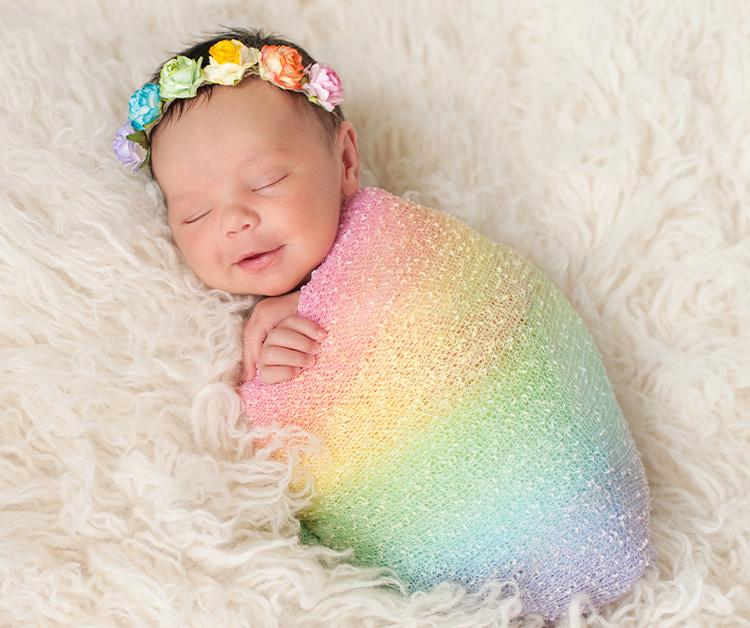Due to maintenance, rewards points for receipt uploads will be delayed. Thank you for your patience!

The term "rainbow baby" is filled with emotional meaning. Find out why rainbow babies are so special.
Medically reviewed by a board-certified pediatrician
All babies are special, but for parents who have experienced a heartbreaking loss—for instance, through the loss of a pregnancy or infant—rainbow babies signify something like a miracle. If you're not familiar with the expression, here's what you should know about the meaning of a rainbow baby.
Though it's not a medical term, "rainbow baby" is commonly used among parents who have endured devastating loss. Simply put, a rainbow baby is a baby born after a miscarriage, stillbirth, or other infant loss. Likewise, a "double rainbow baby" is a baby born after two losses.
For parents who have experienced this kind of deeply painful loss, the symbolism of a rainbow can hold great and poignant meaning. Think of the darkness and turbulence of a storm—and then, the beauty of a light-filled rainbow appearing afterward. That's what a rainbow baby signifies: a reason to celebrate after grief.
If you are expecting a rainbow baby, you may be overjoyed—or you may have mixed, and even conflicting emotions. After miscarriage or other loss, women who become pregnant again may experience a variety of feelings: nervousness, fear, anxiety, excitement, anticipation, hope, or something else entirely. There's no right or wrong way to feel, but it's important to let your emotions flow without judging yourself. Find support for yourself through individual or group therapy, online groups, and by choosing an obstetrician who's sensitive to the trauma you've gone through.
Those mixed emotions may continue even after the birth of your rainbow baby—and again, there's nothing abnormal about that possibility. It's okay, for instance, to celebrate the birth of your rainbow baby while simultaneously mourning the baby you lost. It's also all right and healthy to remind yourself that your broken heart is allowed to heal.
Loving your rainbow baby doesn't mean you're erasing or forgetting what happened. Celebrating the birth of a rainbow baby can happen even as you honor your loss—and remember the storm you withstood. But if you're struggling with painful emotions, you don't have to suffer indefinitely. Find out how to identify signs of postpartum depression, and more importantly, how to get help.
All information on Enfamil, including but not limited to information about health, medical conditions, and nutrition, is intended for your general knowledge and is not a substitute for a healthcare professional's medical identification, advice, or management for specific medical conditions. You should seek medical care and consult your doctor or pediatrician for any specific health or nutrition issues. Never disregard professional medical advice or delay seeking medical treatment, care, or help because of information you have read on Enfamil.